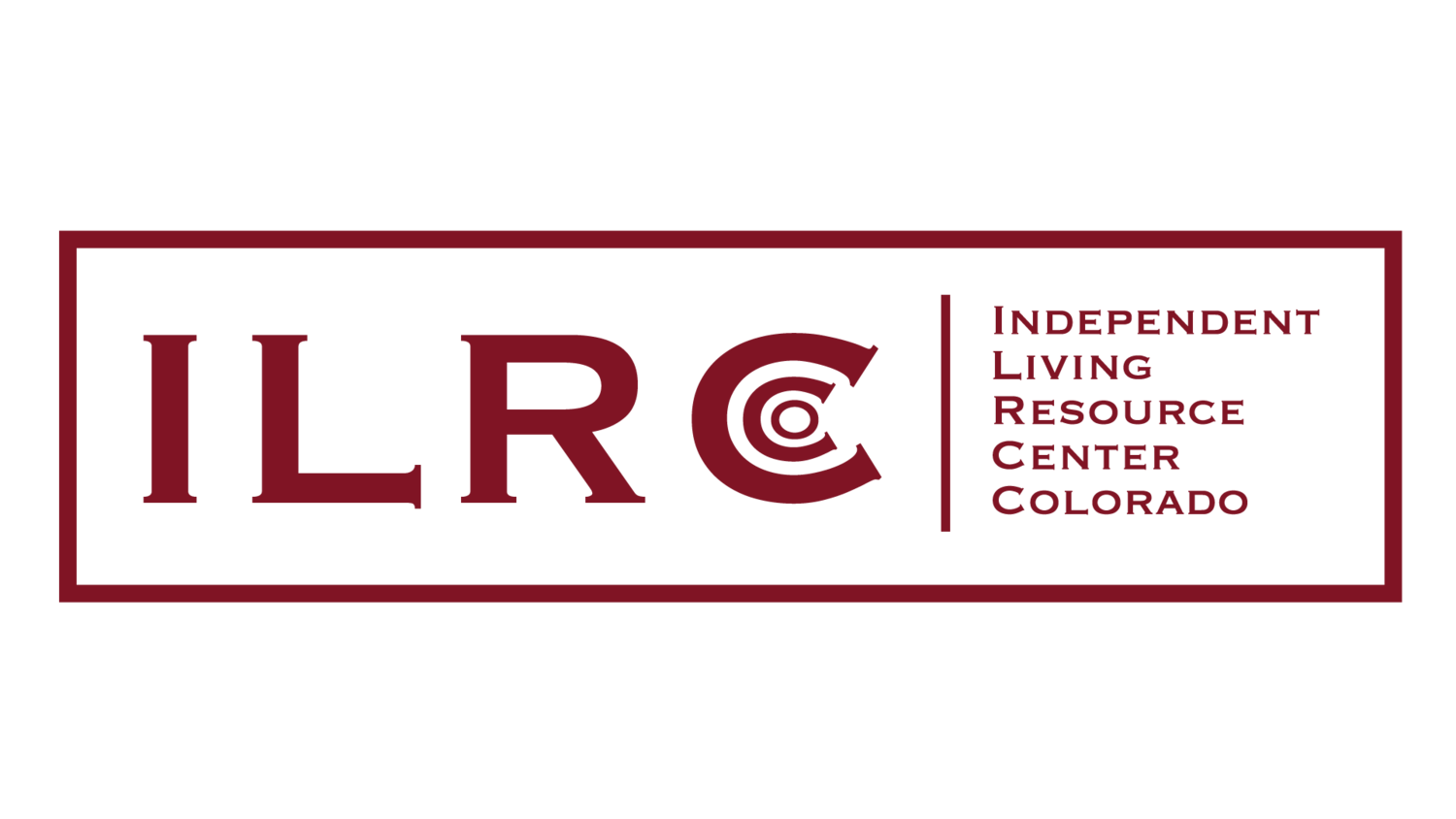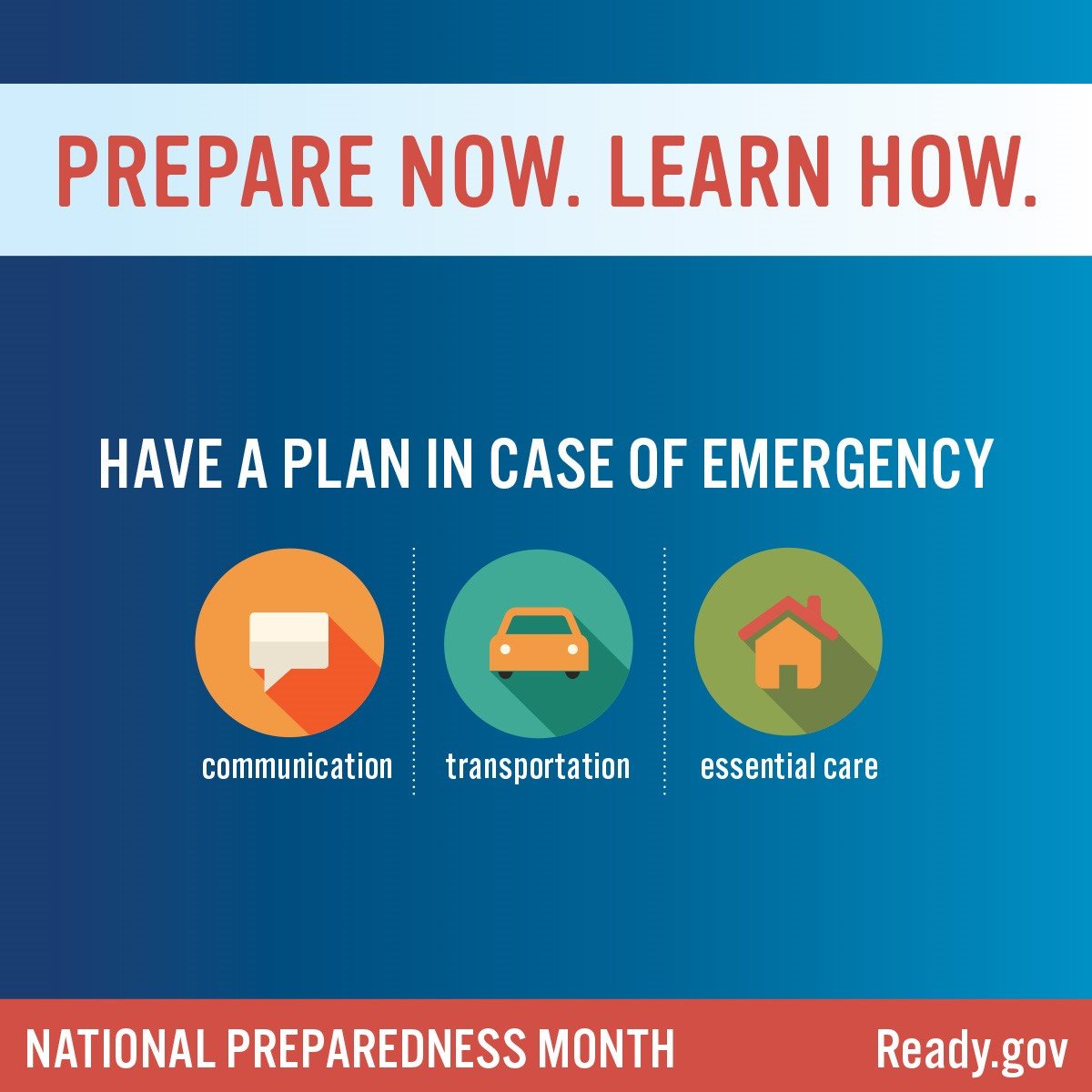Please note: All links on this page open in a new window. Clicking on an image will also open a link in a new window.
Emergency
Preparedness
An emergency can happen anywhere and anytime. And while you can usually expect some help from emergency response officials, it might not come right away. Additionally, after a disaster you may not have access to a medical facility or even a drugstore. It’s crucial to plan for your daily needs and know what you would do if they become limited or unavailable.
That’s why it’s critical that everyone take steps to protect themselves and make sure they can stay safe and healthy if help isn’t around.
Emergency Preparedness Tips for People with Disabilities
Ready.Gov has put together a list of tips for extra steps people with disabilities should keep in mind as they prepare. This is a general list, for tips specific to different disabilities, please visit Ready.gov/disability.
Create a support network of people who can help you in a disaster. Keep a contact list in a watertight container in your emergency kit or on your electronic devices.
Inform your support network where you keep your emergency supplies. You may want to consider giving a trusted member a key to your house or apartment.
Plan ahead for accessible transportation that you may need for evacuation or getting around during or after disaster. Check with local transit providers as well as with your emergency management agency to identify appropriate accessible options.
Many city and county emergency management agencies maintain voluntary registries for people with disabilities to self-identify in order to receive targeted assistance during emergencies and disasters. Contact your local emergency management office to find out more.
If you are on dialysis or other life-sustaining medical treatment know the location and availability of more than one facility that can help you.
If you use medical equipment in your home that requires electricity, talk to your doctor or health care provider about what you may be able to do to keep it running during a power outage. You can also ask your power provider to put you on a list for priority power restoration.
About half of all Americans take a prescription medicine every day. An emergency can make it difficult for them to refill their prescription or to find an open pharmacy. Organize and protect your prescriptions, over-the-counter drugs, and vitamins to prepare for an emergency.
Wear medical alert tags or bracelets. Also add pertinent medical information to your electronic devices.
If you have a communication disability consider carrying printed cards or storing information on your devices to inform first responders and others how to communicate with you.
If you use assistive technologies, plan how you will evacuate with the devices or how you will replace equipment if lost or destroyed.
Locate and access your electronic health records from a variety of sources by using the U.S. Department of Health and Human Services' online tool.
Plan for children and adults who may have difficulty in unfamiliar or chaotic environments. Consider your service or support animal or pets and plan for food, water and supplies. If you need to evacuate, you’ll need to know whether your shelter allows pets or not, since some shelters only allow service or support animals.
Keep a list of the nearest medical facilities, local hospitals and nearest transportation.
Smart 911
Smart 911 is a service that helps 9-1-1 protect your family by providing more information to first responders. If you have any access or functional needs, we encourage you to create a Smart911 profile. This will help responders know how to assist you during an emergency.
Emergency Power Planning
This emergency power planning checklist is for people who use electricity and battery dependent assistive technology and medical devices, including:
Breathing machines (respirators, ventilators).
Power wheelchairs and scooters.
Oxygen, suction or home dialysis equipment.
Some of this equipment is essential to your level of independence while other equipment is vital to keeping you alive! Use the checklist to make power-backup plans.
Review and update this checklist every six months. (One way to remember to do this is when you set your clocks forward in the spring and back in the fall.)
Preparing for Wildfires
Jefferson County has published a guide to encourage residents to be their own hero by preparing and protecting yourself, your family and your property against wildfires. Their guide describes ways you can take matters into your own hands rather than rely on the ability of law enforcement or fire personnel to rescue you in an emergency. While this guide was created specifically for Jefferson County, there are key takeaways for emergency preparedness that can be applied to everyone.



